- Home
- Edith Wharton
The Valley of Decision Page 2
The Valley of Decision Read online
Page 2
Life at Pontesordo was in truth not very pleasant for an ardent and sensitive little boy of nine, whose remote connection with the reigning line of Pianura did not preserve him from wearing torn clothes and eating black bread and beans out of an earthen bowl on the kitchen doorstep.
“Go ask your mother for new clothes!” Filomena would snap at him, when his toes came through his shoes and the rents in his jacket-sleeves had spread beyond darning. “These you are wearing are my Giannozzo’s, as you well know, and every rag on your back is mine, if there were any law for poor folk, for not a copper of pay for your keep or a stitch of clothing for your body have we had these two years come Assumption—. What’s that? You can’t ask your mother, you say, because she never comes here?
True enough—fine ladies let their brats live in cow-dung, but they must have Indian carpets under their own feet. Well, ask the abate, then—he has lace ruffles to his coat and a naked woman painted on his snuff box—What? He only holds his hands up when you ask? Well, then, go ask your friends on the chapel-walls—maybe they’ll give you a pair of shoes—though Saint Francis, for that matter, was the father of the discalced, and would doubtless tell you to go without!” And she would add with a coarse laugh: “Don’t you know that the discalced are shod with gold?”
It was after such a scene that the beggar-noble, as they called him at Pontesordo, would steal away to the chapel and, seating himself on an upturned basket or a heap of pumpkins, gaze long into the face of the mournful saint.
There was nothing unusual in Odo’s lot. It was that of many children in the eighteenth century, especially those whose parents were cadets of noble houses, with an appanage barely sufficient to keep their wives and themselves in court finery, much less to pay their debts and clothe and educate their children. All over Italy at that moment, had Odo Valsecca but known it, were lads whose ancestors, like his own, had been dukes and crusaders, but who, none the less, were faring, as he fared, on black bread and hard blows, and the half-comprehended taunts of unpaid foster-parents. Many, doubtless, there were who cared little enough, as long as they might play morro with the farmer’s lads and ride the colt bareback through the pasture and go bird-netting and frog-hunting with the village children; but some perhaps, like Odo, suffered in a dumb animal way, without understanding why life was so hard on little boys.
Odo, for his part, had small taste for the sports in which Gianozzo and the village lads took pleasure. He shrank from any amusement associated with the frightening or hurting of animals, and his bosom swelled with the fine gentleman’s scorn of the clowns who got their fun in so coarse a way. Now and then he found a moment’s glee in a sharp tussle with one of the younger children who had been tormenting a frog or a beetle; but he was still too young for real fighting, and could only hang on the outskirts when the bigger boys closed, and think how some day he would be at them and break their lubberly heads. There were thus many hours when he turned to the silent consolations of the chapel. So familiar had he grown with the images on its walls that he had a name for every one: the King, the Knight, the Lady, the children with guinea-pigs, basilisks and leopards, and lastly the Friend, as he called Saint Francis. An almond-faced lady on a white palfrey with gold trappings represented his mother, whom he had seen too seldom for any distinct image to interfere with the illusion; a knight in damascened armour and scarlet cloak was the valiant captain, his father, who held a commission in the ducal army; and a proud young man in diadem and ermine, attended by a retinue of pages, stood for his cousin, the reigning Duke of Pianura.
A mist, as usual at that hour, was rising from the marshes between Pontesordo and Pianura, and the light soon ebbed from the saint’s face, leaving the chapel in obscurity. Odo had crept there that afternoon with a keener sense than usual of the fact that life was hard on little boys; and though he was cold and hungry and half afraid, the solitude in which he cowered seemed more endurable than the noisy kitchen where, at that hour, the farm hands were gathering for their polenta, and Filomena was screaming at the frightened orphan who carried the dishes to the table.
He knew, of course, that life at Pontesordo would not last for ever—that in time he would grow up and be mysteriously transformed into a young gentleman with a sword and laced coat, who would go to court and perhaps be an officer in the Duke’s army or in that of some neighbouring prince; but, viewed from the lowliness of his nine years, that dazzling prospect was too remote to yield much solace for the cuffs and sneers, the ragged shoes and sour bread of the present. The fog outside had thickened, and the face of Odo’s friend was now discernible only as a spot of pallor in the surrounding dimness. Even he seemed farther away than usual, withdrawn into the fog as into that mist of indifference which lay all about Odo’s hot and eager spirit. The child sat down among the gourds and medlars on the muddy floor and hid his face against his knees.
He had sat there a long time when the noise of wheels and the crack of a postillion’s whip roused the dogs chained in the stable. Odo’s heart began to beat. What could the sounds mean? It was as though the flood-tide of the unknown were rising about him and bursting open the chapel door to pour in on his loneliness. It was, in fact, Filomena who opened the door, crying out to him in an odd Easter Sunday voice, the voice she used when she had on her silk neckerchief and gold chain or when she was talking to the bailiff.
Odo sprang up and hid his face in her lap. She seemed, of a sudden, nearer to him than any one else—a last barrier between himself and the mystery that awaited him outside.
“Come, you poor sparrow,” she said, dragging him across the threshold of the chapel, “the abate is here asking for you;” and she crossed herself, as though she had named a saint.
Odo pulled away from her with a last wistful glance at Saint Francis, who looked back at him in an ecstasy of commiseration.
“Come, come,” Filomena repeated, dropping to her ordinary key as she felt the resistance of the little boy’s hand. “Have you no heart, you wicked child? But, to be sure, the poor innocent doesn’t know! Come cavaliere, your illustrious mother waits.”
“My mother?” The blood rushed to his face; and she had called him “cavaliere”!
“Not here, my poor lamb! The abate is here; don’t you see the lights of the carriage? There, there, go to him. I haven’t told him, your reverence; it’s my silly tender-heartedness that won’t let me. He’s always been like one of my own creatures to me—” and she confounded Odo by bursting into tears.
The abate stood on the doorstep. He was a tall stout man with a hooked nose and lace ruffles. His nostrils were stained with snuff and he took a pinch from a tortoiseshell box set with the miniature of a lady; then he looked down at Odo and shrugged his shoulders.
Odo was growing sick with apprehension. It was two days before the appointed time for his weekly instruction and he had not prepared his catechism. He had not even thought of it—and the abate could use the cane. Odo stood silent and envied girls, who are not disgraced by crying. The tears were in his throat, but he had fixed principles about crying. It was his opinion that a little boy who was a cavaliere might weep when he was angry or sorry, but never when he was afraid; so he held his head high and put his hand to his side, as though to rest it on his sword.
The abate sneezed and tapped his snuff-box.
“Come, come, cavaliere, you must be brave—you must be a man; you have duties, you have responsibilities. It’s your duty to console your mother—the poor lady is plunged in despair. Eh? What’s that? You haven’t told him? Cavaliere, your illustrious father is no more.”
Odo stared a moment without understanding; then his grief burst from him in a great sob, and he hid himself against Filomena’s apron, weeping for the father in damascened armour and scarlet cloak.
“Come, come,” said the abate impatiently. “Is supper laid? for we must be gone as soon as the mist rises.” He took the little boy by the hand.
“Would it not distract your mind to recite the catechism?” he in
quired.
“No, no!” cried Odo with redoubled sobs.
“Well, then, as you will. What a madman!” he exclaimed to Filomena. “I warrant it hasn’t seen its father three times in its life. Come in, cavaliere; come to supper.”
Filomena had laid a table in the stone chamber known as the bailiff’s parlour, and thither the abate dragged his charge and set him down before the coarse tablecloth covered with earthen platters. A tallow dip threw its flare on the abate’s big aquiline face as he sat opposite Odo, gulping the hastily prepared frittura and the thick purple wine in its wicker flask. Odo could eat nothing. The tears still ran down his cheeks and his whole soul was possessed by the longing to steal back and see whether the figure of the knight in the scarlet cloak had vanished from the chapel wall. The abate sat in silence, gobbling his food like the old black pig in the yard. When he had finished he stood up, exclaiming: “Death comes to us all, as the hawk said to the chicken. You must be a man, cavaliere.” Then he stepped into the kitchen, and called out for the horses to be put to.
The farm hands had slunk away to one of the outhouses, and Filomena and Jacopone stood bowing and curtseying as the carriage drew up at the kitchen door. In a corner of the big vaulted room the little foundling was washing the dishes, heaping the scraps in a bowl for herself and the fowls. Odo ran back and touched her arm. She gave a start and looked at him with frightened eyes. He had nothing to give her, but he said: “Good-bye, Momola”; and he thought to himself that when he was grown up and had a sword he would surely come back and bring her a pair of shoes and a panettone. The abate was calling him, and the next moment he found himself lifted into the carriage, amid the blessings and lamentations of his foster-parents; and with a great baying of dogs and clacking of whipcord the horses clattered out of the farmyard, and turned their heads toward Pianura.
The mist had rolled back and fields and vineyards lay bare to the winter moon. The way was lonely, for it skirted the marsh, where no one lived; and only here and there the tall black shadow of a crucifix ate into the whiteness of the road. Shreds of vapour still hung about the hollows, but beyond these fold on fold of translucent hills melted into a sky dewy with stars. Odo cowered in his corner, staring out awestruck at the unrolling of the strange white landscape. He had seldom been out at night, and never in a carriage; and there was something terrifying to him in this flight through the silent moon-washed fields, where no oxen moved in the furrows, no peasants pruned the mulberries, and not a goat’s bell tinkled among the oaks. He felt himself alone in a ghostly world from which even the animals had vanished, and at last he averted his eyes from the dreadful scene and sat watching the abate, who had fixed a reading-lamp at his back, and whose hooked-nosed shadow, as the springs jolted him up and down, danced overhead like the huge Pulcinella at the fair of Pontesordo.
1.2.
The gleam of a lantern woke Odo. The horses had stopped at the gates of Pianura, and the abate giving the pass-word, the carriage rolled under the gatehouse and continued its way over the loud cobblestones of the ducal streets. These streets were so dark, being lit but by some lantern projecting here and there from the angle of a wall, or by the flare of an oil-lamp under a shrine, that Odo, leaning eagerly out, could only now and then catch a sculptured palace-window, the grinning mask on the keystone of an archway, or the gleaming yellowish facade of a church inlaid with marbles. Once or twice an uncurtained window showed a group of men drinking about a wineshop table, or an artisan bending over his work by the light of a tallow dip; but for the most part doors and windows were barred and the streets disturbed only by the watchman’s cry or by a flash of light and noise as a sedan chair passed with its escort of linkmen and servants. All this was amazing enough to the sleepy eyes of the little boy so unexpectedly translated from the solitude of Pontesordo; but when the carriage turned under another arch and drew up before the doorway of a great building ablaze with lights, the pressure of accumulated emotions made him fling his arms about his preceptor’s neck.
“Courage, cavaliere, courage! You have duties, you have responsibilities,” the abate admonished him; and Odo, choking back his fright, suffered himself to be lifted out by one of the lacqueys grouped about the door. The abate, who carried a much lower crest than at Pontesordo, and seemed far more anxious to please the servants than they to oblige him, led the way up a shining marble staircase where beggars whined on the landings and powdered footmen in the ducal livery were running to and fro with trays of refreshments. Odo, who knew that his mother lived in the Duke’s palace, had vaguely imagined that his father’s death must have plunged its huge precincts into silence and mourning; but as he followed the abate up successive flights of stairs and down long corridors full of shadow he heard a sound of dance music below and caught the flash of girandoles through the antechamber doors.
The thought that his father’s death had made no difference to any one in the palace was to the child so much more astonishing than any of the other impressions crowding his brain, that these were scarcely felt, and he passed as in a dream through rooms where servants were quarrelling over cards and waiting-women rummaged in wardrobes full of perfumed finery, to a bedchamber in which a lady dressed in weeds sat disconsolately at supper.
“Mamma! Mamma!” he cried, springing forward in a passion of tears.
The lady, who was young, pale and handsome, pushed back her chair with a warning hand.
“Child,” she exclaimed, “your shoes are covered with mud; and, good heavens, how you smell of the stable! Abate, is it thus you teach your pupil to approach me?”
“Madam, I am abashed by the cavaliere’s temerity. But in truth I believe excessive grief has clouded his wits—‘tis inconceivable how he mourns his father!”
Donna Laura’s eyebrows rose in a faint smile. “May he never have worse to grieve for!” said she in French; then, extending her scented hand to the little boy, she added solemnly: “My son, we have suffered an irreparable loss.”
Odo, abashed by her rebuke and the abate’s apology, had drawn his heels together in a rustic version of the low bow with which the children of that day were taught to approach their parents.
“Holy Virgin!” said his mother with a laugh, “I perceive they have no dancing-master at Pontesordo. Cavaliere, you may kiss my hand.
So—that’s better; we shall make a gentleman of you yet. But what makes your face so wet? Ah, crying, to be sure. Mother of God! as for crying, there’s enough to cry about.” She put the child aside and turned to the preceptor. “The Duke refuses to pay,” she said with a shrug of despair.
“Good heavens!” lamented the abate, raising his hands. “And Don Lelio?”
he faltered.
She shrugged again, impatiently. “As great a gambler as my husband.
They’re all alike, abate: six times since last Easter has the bill been sent to me for that trifle of a turquoise buckle he made such a to-do about giving me.” She rose and began to pace the room in disorder. “I’m a ruined woman,” she cried, “and it’s a disgrace for the Duke to refuse me.”
The abate raised an admonishing finger. “Excellency…excellency…”
She glanced over her shoulder.
“Eh? You’re right. Everything is heard here. But who’s to pay for my mourning the saints alone know! I sent an express this morning to my father, but you know my brothers bleed him like leeches. I could have got this easily enough from the Duke a year ago—it’s his marriage has made him so stiff. That little white-faced fool—she hates me because Lelio won’t look at her, and she thinks it’s my fault. As if I cared whom he looks at! Sometimes I think he has money put away…all I want is two hundred ducats…a woman of my rank!” She turned suddenly on Odo, who stood, very small and frightened, in the corner to which she had pushed him. “What are you staring at, child? Eh! the monkey is dropping with sleep. Look at his eyes, abate! Here, Vanna, Tonina, to bed with him; he may sleep with you in my dressing-closet, Tonina. Go with her, child, go; but for God’
s sake wake him if he snores. I’m too ill to have my rest disturbed.” And she lifted a pomander to her nostrils.
The next few days dwelt in Odo’s memory as a blur of strange sights and sounds. The super-acute state of his perceptions was succeeded after a night’s sleep by the natural passivity with which children accept the improbable, so that he passed from one novel impression to another as easily and with the same exhilaration as if he had been listening to a fairy tale. Solitude and neglect had no surprises for him, and it seemed natural enough that his mother and her maids should be too busy to remember his presence.
For the first day or two he sat unnoticed on his little stool in a corner of his mother’s room, while packing-chests were dragged in, wardrobes emptied, mantua-makers and milliners consulted, and troublesome creditors dismissed with abuse, or even blows, by the servants lounging in the antechamber. Donna Laura continued to show the liveliest symptoms of concern, but the child perceived her distress to be but indirectly connected with the loss she had suffered, and he had seen enough of poverty at the farm to guess that the need of money was somehow at the bottom of her troubles. How any one could be in want, who slept between damask curtains and lived on sweet cakes and chocolate, it exceeded his fancy to conceive; yet there were times when his mother’s voice had the same frightened angry sound as Filomena’s on the days when the bailiff went over the accounts at Pontesordo.

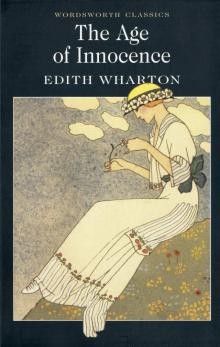 The Age of Innocence
The Age of Innocence The Reef
The Reef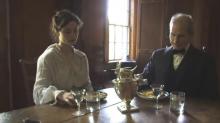 Summer
Summer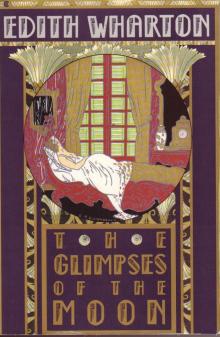 The Glimpses of the Moon
The Glimpses of the Moon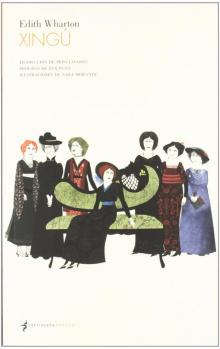 Xingu
Xingu The Fruit of the Tree
The Fruit of the Tree Fast and Loose
Fast and Loose Artemis to Actaeon and Other Verse
Artemis to Actaeon and Other Verse The Line of Least Resistance
The Line of Least Resistance The Lamp of Psyche
The Lamp of Psyche The Reckoning
The Reckoning Afterward
Afterward The New York Stories of Edith Wharton
The New York Stories of Edith Wharton The 2014 Halloween Horrors Megapack
The 2014 Halloween Horrors Megapack 'Copy': A Dialogue
'Copy': A Dialogue The Recovery
The Recovery The Fulness of Life
The Fulness of Life Early Short Stories Vol. 1
Early Short Stories Vol. 1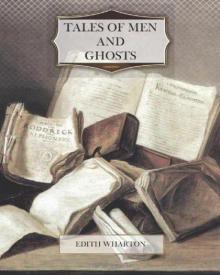 Tales of Men and Ghosts
Tales of Men and Ghosts The House of the Dead Hand
The House of the Dead Hand That Good May Come
That Good May Come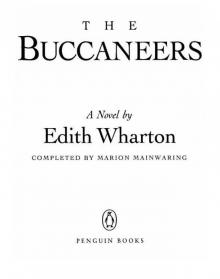 The Buccaneers
The Buccaneers Other Times, Other Manners
Other Times, Other Manners The Hermit and the Wild Woman
The Hermit and the Wild Woman Kerfol
Kerfol The Duchess at Prayer
The Duchess at Prayer Bunner Sisters
Bunner Sisters The Choice
The Choice Madame De Treymes
Madame De Treymes Ethan Frome, Summer, Bunner Sisters
Ethan Frome, Summer, Bunner Sisters In Morocco
In Morocco The Valley of Decision
The Valley of Decision Age of Innocence (Barnes & Noble Classics Series)
Age of Innocence (Barnes & Noble Classics Series) The Angel at the Grave
The Angel at the Grave April Showers
April Showers Sanctuary
Sanctuary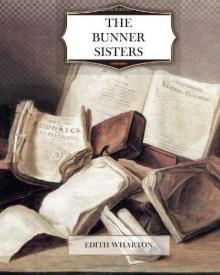 The Bunner Sisters
The Bunner Sisters Mrs. Manstey's View
Mrs. Manstey's View Writing a War Story
Writing a War Story The Custom of the Country
The Custom of the Country In Trust
In Trust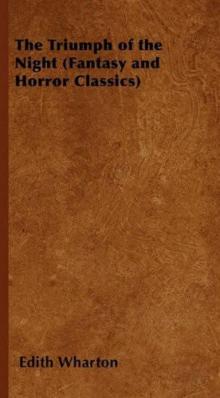 The Triumph of the Night
The Triumph of the Night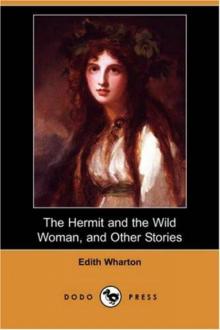 The Hermit and the Wild Woman, and Other Stories
The Hermit and the Wild Woman, and Other Stories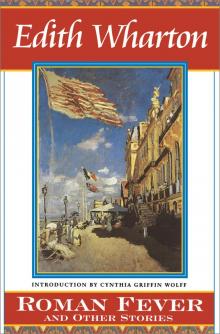 Roman Fever and Other Stories
Roman Fever and Other Stories The Mission of Jane
The Mission of Jane The Descent of Man and Other Stories
The Descent of Man and Other Stories Coming Home
Coming Home The Touchstone
The Touchstone Early Short Stories Vol. 2
Early Short Stories Vol. 2 Edith Wharton's Verse, 1879-1919, from various journals.
Edith Wharton's Verse, 1879-1919, from various journals.